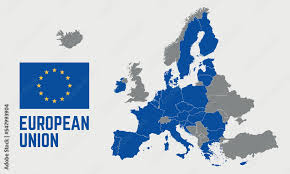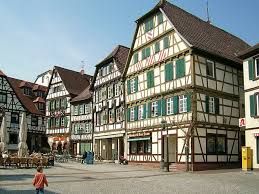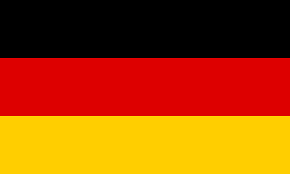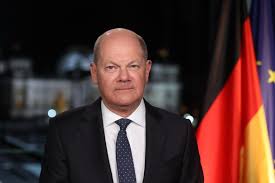Germany, once the economic powerhouse of the European Union, since its days as the European Coal and Steel Community (1951), the European Common Market (1957), the European Economic Community (1967), and the European Community (2002). It finally became the European Union in 1993.
 The original six countries, Belgium, France, (West) Germany, Italy, Luxembourg and the Netherlands, expanded to 28 at its peak in 2016, now 27 following Brexit, when the UK opted to leave the Union. Following a referendum on 23 June 2016, Brexit officially took place at 23:00 GMT on 31 January 2020.
The original six countries, Belgium, France, (West) Germany, Italy, Luxembourg and the Netherlands, expanded to 28 at its peak in 2016, now 27 following Brexit, when the UK opted to leave the Union. Following a referendum on 23 June 2016, Brexit officially took place at 23:00 GMT on 31 January 2020.
So, what is happening in Germany?
 Let’s take a look through the example of a small town in Baden-Wuerttemberg, south Germany.
Let’s take a look through the example of a small town in Baden-Wuerttemberg, south Germany.
Retired Philosophy professor, Diego Núñez, wrote an article last October in Diario Sur, based around the town of Bretten (pop. 20,000) 45 kilometres to the north of Stuttgart.
I know Bretten quite well. As a 20-year-old student I worked one summer at the nearby motorway services at Bruchsal. Decades later, having acquired a German wife, I have been a frequent visitor to Bretten, as it’s the main town in the area where my German stepson Johannes lives and works.
El drama alemán
I was surprised at the content of Professor Nuñez’ article.
He reports that he went out one day at the end of September 2023 with his wife to go shopping. I assume that they now live there.
First stop was the Dry Cleaner’s. To their surprise there was a big sign on the locked door stating that the place had shut down.
A passer-by, noticing their surprise, commented that all the Dry Cleaners in the area had closed down. The nearest one now was in Karlsruhe, 30 kilometres away.
Next stop the Bakery. Of the four that co-existed in the town, only two remain open, they were told by the baker, an acquaintance. “I’ve kept going by maintaining my prices but by reducing the size of my loaves and rolls.” he told them.
Technical Recession
And so it continued. As industry in the area has declined so has the number of small businesses. The reason, they all say, is the high cost of energy.
 The federal government tries to mask the situation, but the fact is the German economy has stagnated and there is no obvious way out in the short term. However hard it tries to deny it, Germany has been in a technical recession for months.
The federal government tries to mask the situation, but the fact is the German economy has stagnated and there is no obvious way out in the short term. However hard it tries to deny it, Germany has been in a technical recession for months.
There is a pronounced sense of economic pessimism. According to the Federal Office of Statistics in Wiesbaden (Hesse), food prices have soared compared with the year before. For example, bread has gone up by 10.7%; fruit by 8.2%; and vegetables by 7.9%. In the case of fuel, petrol went up by 1.4% and diesel by 3.5% in just one month, from August to September 2023.
 Faced with this scenario, the typical reaction of German citizens is to save.
Faced with this scenario, the typical reaction of German citizens is to save.
Progress on digitalisation and improvements to infrastructure have both been slow.
The federal government is doing what it can, but discontent among the population is palpable, with many citizens turning to the right-wing party Alternative fur Deutschland (AfD).
Germany, under Chancellor Olaf Scholz (SPD) has lost its place in the world hierarchy, but that’s another story for another day …..
© Pablo de Ronda
Acknowledgements:
Diario Sur
Diego Núñez
El Mundo
Federal Office of Statistics, Wiesbaden
Paul Whitelock (translator)
Wikipedia
Tags:
Alemania, AfD, Alternative fur Deutschland, Baden-Wuerttemberg, bakery, Belgium, bread, Bretten, Brexit, Bruchsal, Chancellor Olaf Scholz, Common Market, Diario Sur, Diego Núñez, diesel, digitalisation, Dry Cleaner, economic pessimism, economic powerhouse, European Coal and Steel Community, European Community, European Economic Community, European Union, Federal Office of Statistics, federal government, France, fruit, fuel, German citizens, German economy, Germany, Hesse, high cost of energy, improvements to infrastructure, industry, Italy, Karlsruhe, Luxembourg, motorway services, Netherlands, Olaf Scholz, Pablo de Ronda, petrol, Philosophy professor, small businesses, SPD, Stuttgart, technical recession, UK, vegetables, Wiesbaden